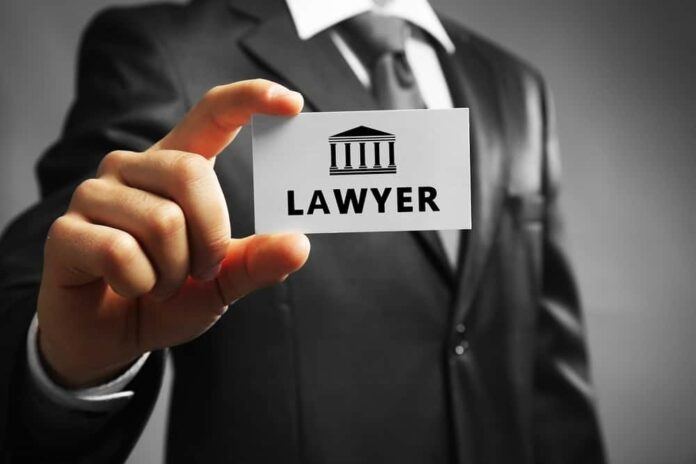The majority of universities and colleges deal with students who are not happy about their academic results. In this situation, the students can go through a grievance and complaint procedure. Students can file an appeal to the academic results which they think they don’t deserve.
Also, appeals are allowed when it comes to decisions such as academic dismissal and suspension.
At this level, it is important to have an academic appeals lawyer advise a student and present their case at the academic unit that made the decision. The attorney must obtain the facts, create the appeal, and submit it to the university or college. Then, they will present a legal argument before the legal advisor of the school for the student. Check this link now.
Importance of Having an Attorney

Any student who wants to challenge the judgment of university or college seniors against them can consider an academic appeal. When a student files an appeal, the other party will consider them their challenger. In this case, the student can’t expect the party to make decisions in their favor. But, they can trust their attorney to ensure a fair decision is made. Also, the lawyer is available to them and their case from the get-go until they achieve a resolution. A student can depend on their lawyer to get the resolutions they desire because they have the necessary experience and knowledge.
Investing money and time into this course can be quite draining for a student. Hearing the news that they may not be a part of the graduating class is truly heartbreaking. Having a lawyer on their side can ease their frustrations.
Appealing an Academic Dismissal

One of the academic decisions that students can appeal is dismissal from a university or college. Appealing this decision is allowed within a period the dismissal notification sets forth. A student must make their appeal in writing and include the explanation of their poor academic performance and why the school should consider the dismissal. An academic review board will review the appeal before the make a final determination.
If the board waives the dismissal, the student can continue enrollment, potentially on academic probation. The student may be required to meet certain conditions such as changing course workload or going through advising. However, if the dismissal is upheld, the school may prohibit the student from enrolling for a minimum of one semester. The student must get in touch with the school’s Enrollment Services to get more information and guidance. An undergraduate student may be required to complete their coursework at another university or college.
Identify the Official Appeal Procedure at Your School

Colleges and universities have an official policy for handling academic appeals on their student handbook. This policy spells out the deadlines and steps a student should take to make an appeal. After you find the policy, familiarize yourself with the potential avenues you can explore. In addition, ensure you find the handbook sooner because such matters are time-sensitive.
Follow the Procedure
Your student handbook should outline the right people to speak to for your issues. Also, it should tell you the order in which you can speak to each of these people. Often, you will first have to talk to your professor, then the department chair, and perhaps the dean of academic affairs or the President. Your attorney can help you draft a written request for appeal.
Create a Paper Trail

To prove your case, you must have physical evidence to present. For instance, if you are disputing a grade, you must have old examinations, a syllabus, or rubrics to point out the discrepancy. In addition, you need to keep notes of conversations you had with faculty during the appeals process. You can keep document conversations and meetings in an email or word document you can easily refer to when necessary.
Stay Respectful
Even you desperately want to win your appeal, do not forget your intention to stay enrolled in the school. As you deal with your appeal, try to be as civil as possible when you correspond with the college of the university and its faculty. You will never know that person you may fight within the Dean’s office could be your professor someday.
Hire a Lawyer

Find a lawyer with experience in the type of issues you are dealing with. Once you hire a lawyer, give them all relevant records, facts, and paper trail, so they can study your case and effectively represent you at the hearing if your school permits. Also, your lawyer will draft letters to the school, mention related case law that can support your position, and negotiate with it.
College students can face academic and sexual misconduct accusations. Accusations for academic misconduct include claims that a certain student violated the code of conduct of their school. They can include plagiarism, cheating, theft, and forgery. These are serious allegations as they can get a student expelled from their school. Also, they can be recorded in the student’s transcript when they face another penalty and are permitted to graduate. This mark on the academic record can be hard to overcome because it can affect a person’s ability to get a job.
On the other hand, sexual misconduct can be worse than academic misconduct. Accusations of sexual misconduct include stalking, harassment, or rape on campus. They trigger the Title IX law which makes sexual discrimination in colleges and universities prohibited. Colleges that receive funding from the federal government must enforce the law. However, because of this pressure, some schools may violate the due process rights of accused students. If the accused has a lawyer on their side, they can be sure their side of the story is heard.
What to Expect from the Misconduct Hearing?
The majority of those accused of violating the code of conduct of their college or university prefer to deal with their situation without legal assistance. But, a misconduct hearing is held by a panel of school or admin officials, who don’t have a lot of experience in handling this type of case. As a result, the panel can fall for unrelated evidence or claims that do not have credibility. When this happens, an innocent student who is looking to show their innocence at the hearing can be in a tough position.
If you are facing charges of academic or sexual misconduct in your college or university, you must hire an attorney to help you stand a chance at the hearing. Having a blemish on your academic record will lead to significant hardship and can impair your ability to achieve your dream career.









